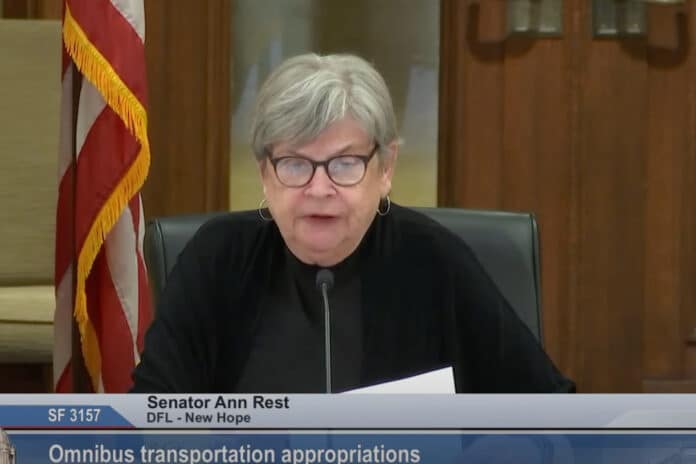
A proposed 75-cent delivery fee on most retail goods sent to homes and businesses that DFLers in the House and Senate have included in their $8 billion transportation budget appears to have lost momentum.
Democrat legislators in a Senate committee on Thursday voted to remove the highly controversial provision from SF3157 that has been opposed by a number of small business associations since it was introduced last month. Those organizations opposing the delivery fee include: the Minnesota Chamber of Commerce, Hospitality Minnesota, Minnesota Retailers Association, Minnesota Grocers Association, Minnesota Service Station & Convenience Store Association, National Federation of Independent Business, Minnesota Licensed Beverage Association, and Minnesota Municipal Beverage Association.
While the DFL’s proposed 75-cent delivery fee — which would raise nearly $600 million in revenue for the transportation budget — moved through initial committee hearings in the House and Senate on party-line votes, one ranking DFLer — Sen. Ann Rest, who chairs the taxes committee — has been hesitant to support the provision. That comes as the Democrats hold just a 34 to 33 advantage over Republicans in the chamber.
Sen. Scott Dibble, DFL-Minneapolis, who chairs the Senate Transportation Committee, presented an amendment to his transportation omnibus bill that included elimination of the delivery fee, as well as a reduction in a proposed metro-wide sales tax from 0.75 cents to 0.5 cents.
“I want to thank [Sen. Dibble] for responding to my concerns about the level of the sales tax and reducing it to a half a cent,” said Rest, DFL-New Hope. “That, and the removing of the delivery fee certainly leads me to enthusiastically support [this] bill. Before that, there was some hesitancy on my end.”
While the delivery fee and 0.75 cent metro wide sales provisions are still included in the House version of the transportation omnibus bill, it’s now possible that both won’t survive a conference committee, following the Democrats’ vote in the Senate Taxes Committee.
Republicans criticize Democrat ‘spending spree’ despite historic surplus
Republicans in that committee expressed appreciation for those changes but still voted to oppose the overall legislation, which would increase the transportation budget by more than $1 billion, representing about 5 percent of the now $19 billion budget surplus.
“I am still trying to wrap my arms around the huge spending spree the Democrats are going on here in a wide variety of areas,” said Sen. Steve Drazkowski, R-Mazeppa. “Obviously when everything is a priority in spending, then nothing is a priority. And when nothing is a priority, you end up in a situation where [DFL senators] in the transportation committee are in — and you are raising taxes on Minnesotans when we have a huge overcollection.”
Business leaders continued to echo those sentiments, and criticized the tax increases remaining in the bill, including a $700 million increase in motor vehicle tab fees and $200 million in motor vehicles sales.
“Our members don’t have the luxury of looking at these increases in a vacuum,” said Bentley Graves, government relations director for the Minnesota Chamber of Commerce, which represents more than 6,300 businesses that employ more than a half million people across Minnesota.
“These tax increases come at a time when Minnesota ranks 45th when it comes to business tax climate, among the worst in the country,” Graves said.
Hank Long
Hank Long is a journalism and communications professional whose writing career includes coverage of the Minnesota legislature, city and county governments and the commercial real estate industry. Hank received his undergraduate degree at the University of Minnesota, where he studied journalism, and his law degree at the University of St. Thomas. The Minnesota native lives in the Twin Cities with his wife and four children. His dream is to be around when the Vikings win the Super Bowl.
















